Question And Answer
Publications
Articles, publications, books, tools and multimedia features from the U.S. Institute of Peace provide the latest news, analysis, research findings, practitioner guides and reports, all related to the conflict zones and issues that are at the center of the Institute’s work to prevent and reduce violent conflict.
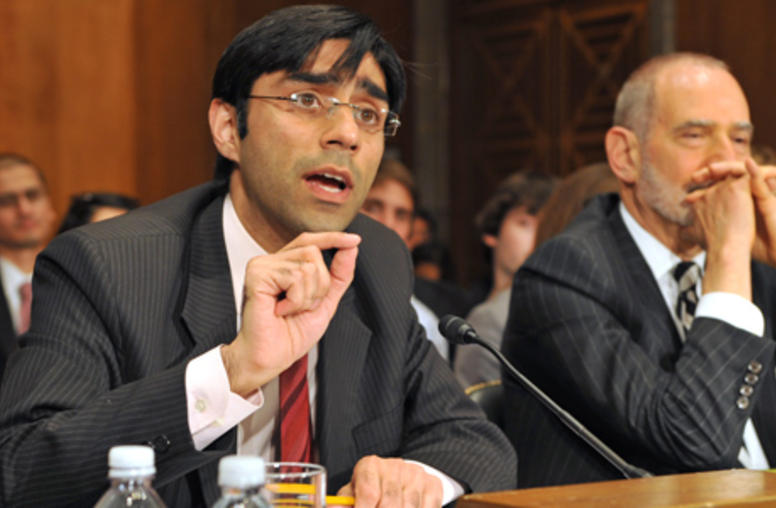
Assessing U.S. Policy and Its Limits in Pakistan
USIP South Asia Adviser, Moeed Yusuf, testifies before the Senate Foreign Relations Committee on U.S.-Pakistan Relations.
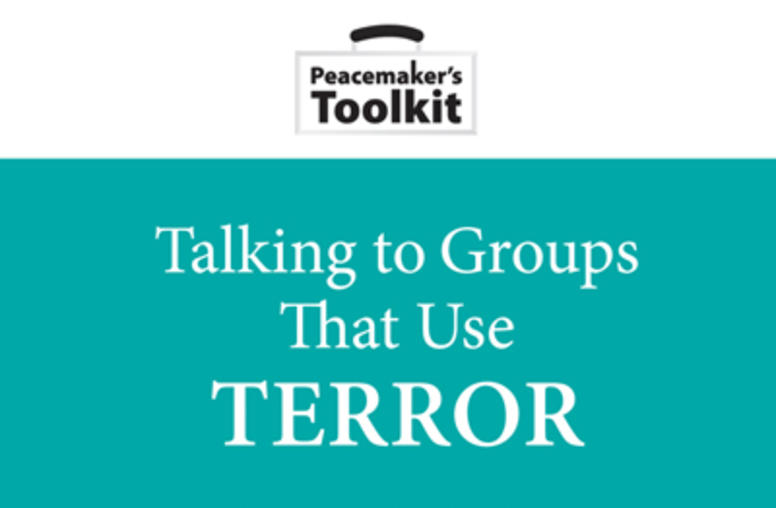
Talking to Groups That Use Terror
This volume poses and attempts to answer a series of basic, but complex, questions regarding engagement of proscribed armed groups (PAGs). This handbook is part of the Peacemaker’s Toolkit series, published by the United States Institute of Peace.
Building Confidence to Enable Peacebuilding: USIP Support for Track II Dialogue
Since 1989, tensions have flared repeatedly and at times violently between the Republic of Georgia and the territory of South Ossetia. The most recent episode of conflict came to a head in August 2008, when a Georgian military offensive into South Ossetia prompted an immediate response by Russia, resulting in a week of severe clashes until a ceasefire agreement was brokered by international actors. The subsequent peace, however, remains fragile, with many issues still contentious and unreso...
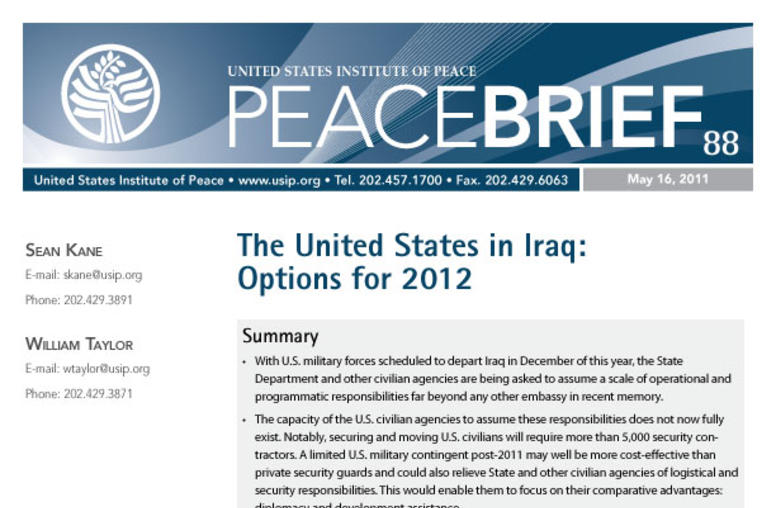
The United States in Iraq: Options for 2012
This Peace Brief draws on the authors’ experiences in Iraq and a two-day, off-the-record meeting co-hosted by USIP in February 2011.
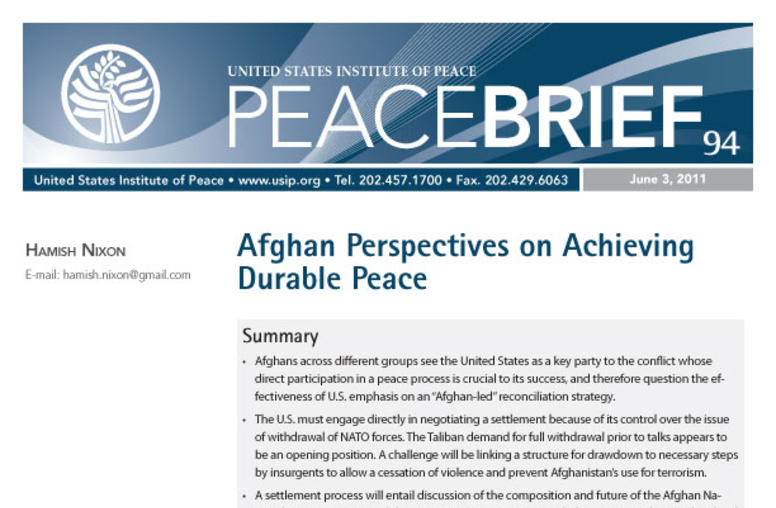
Afghan Perspectives on Achieving Durable Peace
This brief outlines key findings from the first phase of research on Afghan stakeholder views on the conflict. The author worked in Afghanistan for the World Bank and the Afghanistan Research and Evaluation Unit from 2005-2010, and has researched governance and peace processes in Southeast Asia, Central America and Afghanistan.
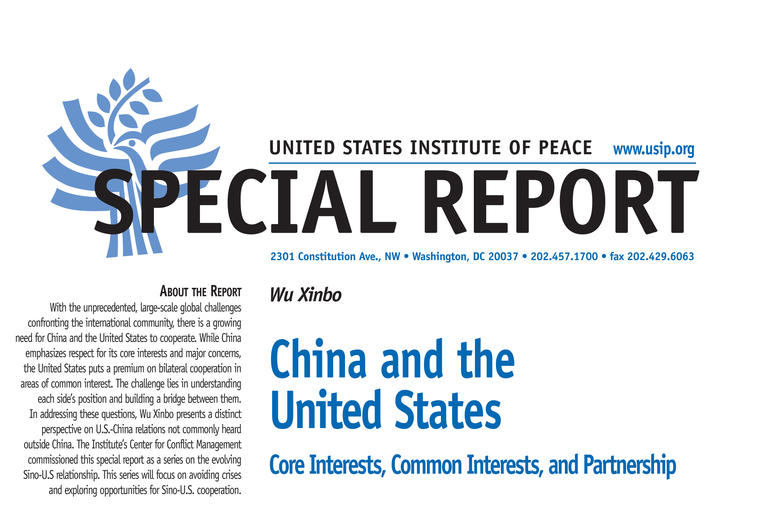
China and the United States
While China continues to call for US respect of its core interests as a means toward greater cooperation on the Korean Peninsula and global climate change, the United States prefers an immediate focus on cooperating on those common concerns. A leading Chinese scholar examines how these differences can be bridged to build a genuine partnership.
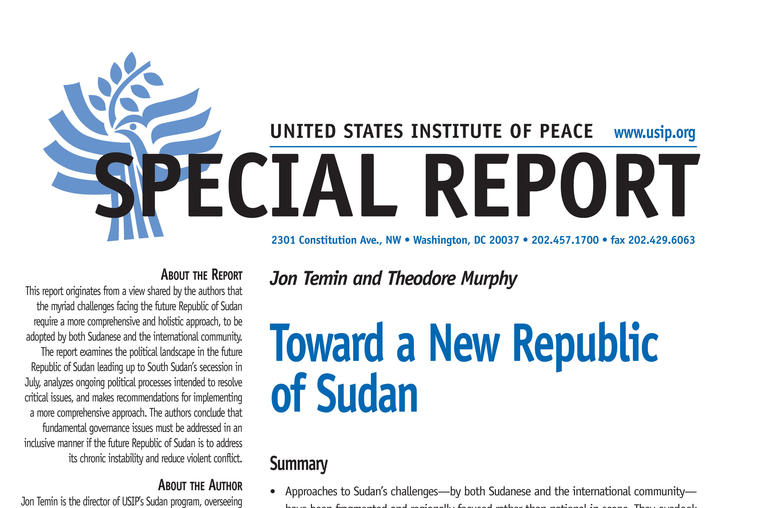
Toward a New Republic of Sudan
The exclusionary governance that led South Sudan to secede from the rest of Sudan continues to bedevil the government of the new Republic of Sudan to the north. Both the July secession and the Arab Spring could provide the impetus the ruling party needs to lead national governance reforms and to engage its diverse citizenry in making a new constitution.
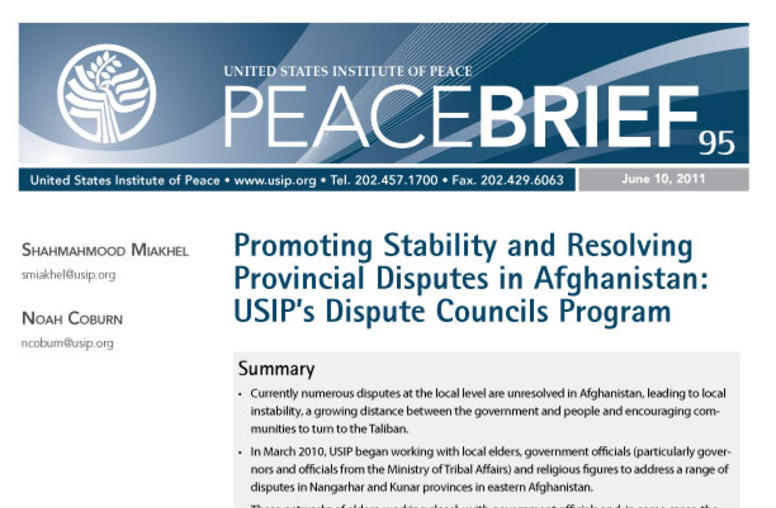
Promoting Stability and Resolving Provincial Disputes in Afghanistan
Currently numerous disputes at the local level are unresolved in Afghanistan, leading to local instability, a growing distance between the government and people and encouraging communities to turn to the Taliban. In March 2010, USIP began working with local elders, government officials (particularly governors and officials from the Ministry of Tribal Affairs) and religious figures to address a range of disputes in Nangarhar and Kunar provinces in eastern Afghanistan.
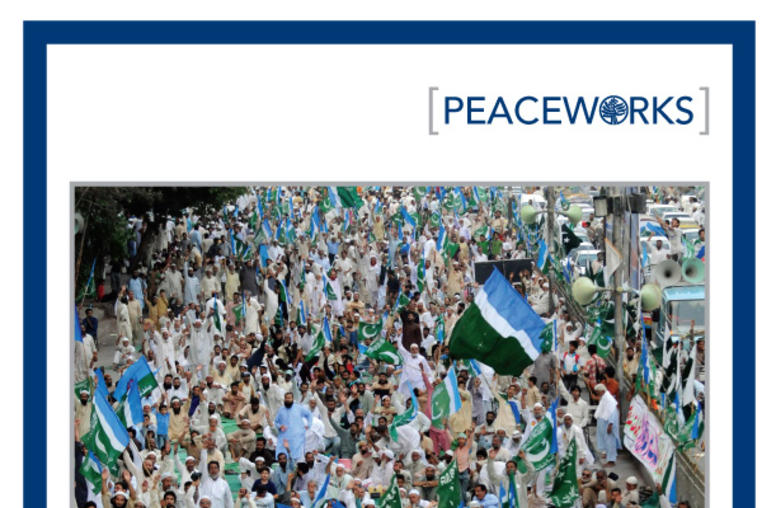
Will the Long March to Democracy in Pakistan Finally Succeed?
To break its pattern of alternating democratic and military rule, Pakistan’s civilian government should assert authority over its military and intelligence agencies, involve civil society in building a robust legislative agenda, and investigate and prosecute corruption. The international community can help by maintaining support for Pakistani institutions and organizations that have strengthened democratic practices.
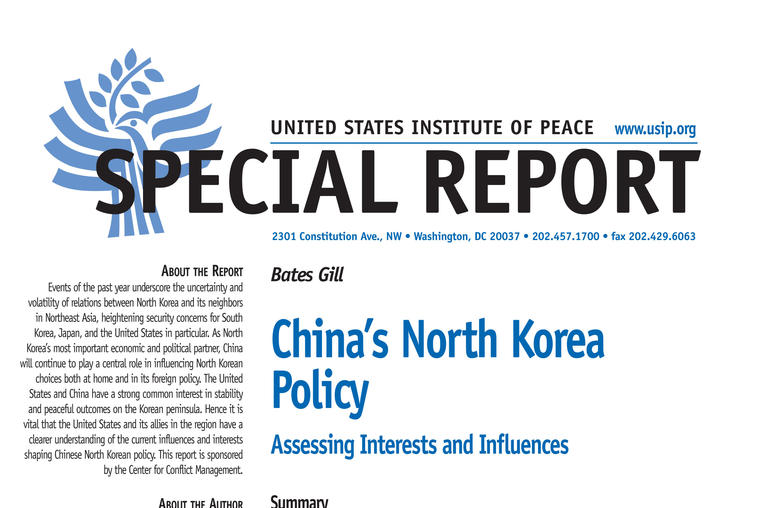
China’s North Korea Policy
Key elements in China’s Communist Party, military, and business circles have steered China’s North Korea policy toward achieving stability and strengthening ties to Pyongyang, complicating U.S. efforts to enlist China’s help at reining in North Korean provocations.